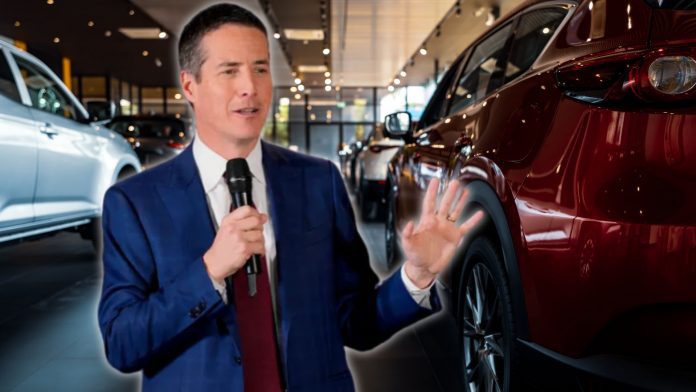Donald Trump’s 2024 presidential comeback is sending ripples through the political and automotive worlds, with major implications for car dealers, labor unions, and industry regulations. The Republican victory not only secured Trump’s return to office but also handed the GOP a Senate majority, bolstered by significant wins in Ohio and West Virginia.
One standout moment in Ohio was the victory of former car dealer Bernie Moreno, who unseated long-time Democratic Senator Sherrod Brown. The win was a double blow to the United Auto Workers (UAW) and pro-union forces. It also guaranteed a Republican majority in the Senate and marked the end of Brown’s tenure as a persistent Union ally. Brown had long supported UAW initiatives, even walking the picket line with striking Stellantis workers last year. Supporters of financial deregulation welcome his departure from the Senate, hoping to influence changes in banking and labor policies.
Moreno’s victory also represents a win for car dealerships, with the automotive industry rallying behind him. Brown’s campaign targeted Moreno for his past as an auto dealer, attempting to discredit him as a businessman. However, Moreno’s team, and many in the industry, pushed back against these attacks. “Sherrod Brown made a pivotal mistake by attacking Bernie for simply being a car dealer,” said Reagan McCarthy, spokeswoman for Moreno. “The industry did not take kindly to Brown’s disgusting attack.”
Meanwhile, Trump’s return also poses challenges for the UAW, whose leadership invested considerable efforts into supporting Vice President Kamala Harris’ campaign. The UAW now faces a setback as Trump gains the power to appoint members to the National Labor Relations Board (NLRB), a move that could shift the direction of future strikes and union organizing efforts. Despite UAW President Shawn Fain’s attempts to organize non-union automakers, including a recent success at Volkswagen’s Chattanooga plant, it remains uncertain how these efforts will fare under a Trump administration.
As we look ahead to the ongoing effects of Trump’s election win on the automotive sector, industry leaders and car dealers alike will need to navigate new political and economic landscapes, from regulatory shifts to labor dynamics.



